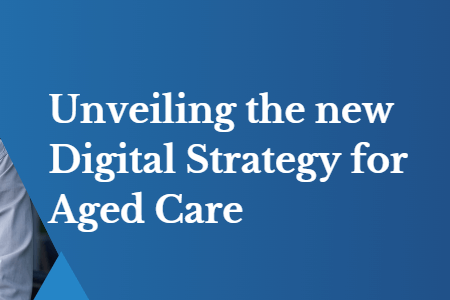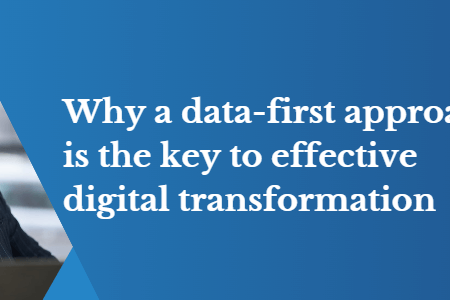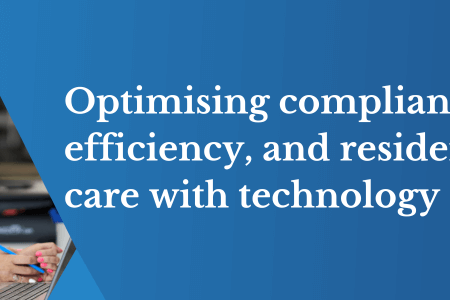How 3 aged care CEOs are taking a practical approach to technology
September 19, 2024 | Data
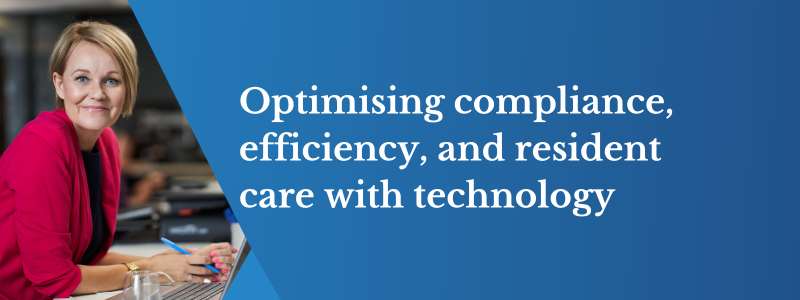
By Susan Howarth, Head of Marketing
In a recent webinar panel discussion, Wendy Rocks, MD of Lutheran Aged Care, Frank Weits, Exec GM of Residential Aged Care at AnglicareSA, and Justin Dover, CO-CEO of Alino Living, provided valuable insights into the role of technology in their organisations over the last 18 to 24 months. The discussion emphasised not just the use of technology for its own sake, but its ability to deliver tangible outcomes, particularly those that benefit residents. Let’s take a closer look at each panel member’s technology journey and the strategies they’ve employed to balance operational demands with meaningful results.
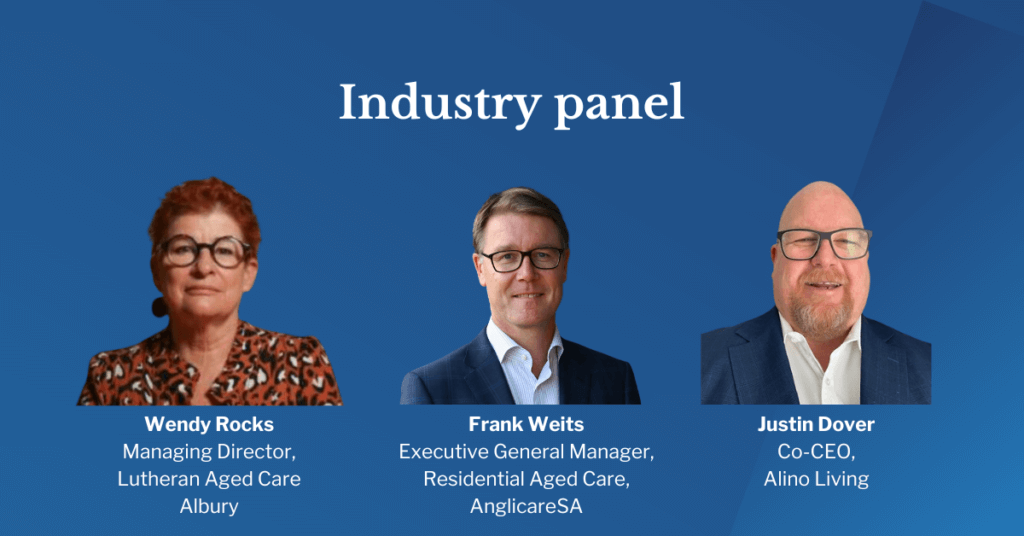
Wendy’s perspective: Transforming decision-making through data
Wendy began by sharing her organisation’s experience with technology, which has been fast-paced and transformational. Though her current focus has been over the last couple of years, Wendy highlighted that their tech journey began earlier, back in 2013-14, when they started collaborating with a business strategist who had expertise in technology. Initially driven by compliance requirements, Lutheran Aged Care mapped its business operations, a process that led them to explore big data.
One key moment in their journey was realising the power of data-driven decision-making. Wendy noted that, particularly in aged care, evidence-based decision-making had historically been a challenge. Having access to data that could directly inform and improve decisions was a significant breakthrough for them, helping Lutheran evolve beyond using isolated systems. As a result, they’ve moved towards a more integrated framework where systems communicate with one another, allowing for a more holistic approach to both compliance and operational needs.
However, Wendy acknowledged the financial realities that come with such technological advancements. Investments in technology are not only about upfront costs but also about ongoing expenses, which require substantial capital. She raised concerns about the heavy government focus on compliance systems rather than directly supporting aged care providers in improving their digital infrastructure. Wendy suggested that a more balanced allocation of funds could help providers like her own develop the necessary systems to drive real value for residents.
When looking ahead, Wendy reinforced the importance of strategic IT planning for future advancements. She pointed out that her Lutheran is implementing AI in ways that not only improve internal systems but also directly benefit residents. Her business has recently reintroduced in-house housekeeping services, supported by cleaning robots that gather operational data. In the future, Wendy’s team aims to expand into AI-driven resident assistance, such as concierge services. She noted the importance of robots and AI in not just operational efficiency but in enhancing resident experiences and engagement.
Frank’s experience: Building a strategic and capabilities-driven approach
Frank shared a different perspective, focusing on the importance of aligning technology with the broader business strategy. He emphasised that in his Anglicare SA, and in his previous roles, the starting point has always been understanding what the business stands for and what it wants to be known for beyond mere compliance. For Frank, the strategic alignment of technology is vital, which is why Anglicare SA has adopted a business capability model to guide their tech investments.
Frank’s organisation is currently developing a business capability model that enables Anglicare SA to map its structures and processes and pinpoint areas for investment. By utilising heat maps, Frank’s team can identify where data resides, which systems deliver the most value, and where additional investments are necessary. This structured, enterprise-wide approach establishes a solid foundation for long-term technological transformation, aligning systems with Anglicare SA’s goals. Through this robust IT strategy, Frank’s organisation is positioning itself to be more adaptable to future innovations, such as AI, and is preparing to meet both current and future challenges.
Frank’s future outlook centered on the application of assistive technologies designed from a resident-centric perspective. Anglicare SA plans to introduce tools like smartphones, mobile apps, wearable technology, robots, and virtual reality to empower residents and improve their experience. The challenge, however, lies in extracting and interpreting the data generated by these technologies in a way that leads to better outcomes for the residents. He echoed the sentiment that while assistive tech creates valuable data, integration and practical use are key to avoiding isolated data silos.
Justin’s journey: Merging technology in a growing organisation
Justin offered a unique perspective, coming from a business that had recently gone through a merger. In 2020, three separate entities combined into one, presenting both challenges and opportunities regarding technology. Initially, the leadership team had envisioned a unified system across all sites, which seemed like a logical step. However, after a more in-depth analysis, they realised that a one-size-fits-all approach wasn’t necessarily the best solution.
Instead of forcing a complete overhaul of their systems, Alino Living adopted a more flexible mindset. They realised that different sites could benefit from specialised systems tailored to their specific needs. This approach allowed them to leverage the best technology available without disrupting existing operations. By focusing on incremental changes and carefully selecting technologies that complement each other, Justin’s business was able to navigate the complexities of integration while maintaining operational efficiency.
Looking to the future, Justin emphasised that his organisation is heavily focused on leveraging artificial intelligence (AI) to extract the most relevant data from various systems. Acknowledging the complexity of integrating data from multiple sources like maintenance, catering, and compliance, he highlighted that AI offers a promising solution to overcome these challenges. His team is concentrating on how AI can pull out meaningful insights from the overwhelming amount of data collected, transitioning from mere data collection to intelligent data use. He also noted the rapid pace of technological advancement, suggesting that in 18 months, the industry could be in an entirely different place with AI.
Key takeaways from our panel
The collective insights from Wendy, Frank, and Justin give us several important takeaways:
- Data is key to getter decisions: Wendy’s emphasis on data-driven decision-making highlights the need for aged care providers to move beyond compliance and leverage technology that provides actionable insights, improving both operational efficiency and resident care.
- Strategic alignment: Frank’s focus on aligning technology with his organisation’s broader goals shows that tech investments should be driven by the business’s purpose and long-term strategy, not just by regulatory demands.
- Flexibility in implementation: Justin’s experience demonstrates that a flexible, customised approach to technology can be more effective than a sweeping, one-size-fits-all solution, especially for organisations navigating complex transitions such as mergers.
Ultimately, all three leaders shared with us the importance of using technology to drive outcomes that benefit residents, rather than simply adopting new tools for the sake of innovation. By focusing on the strategic integration of systems, aged care providers can better balance the demands of compliance, operational efficiency, and resident outcomes.
The conversation also highlighted that the real value of this technology lies in breaking down data silos and creating systems that can talk to each other, turning observational data into actionable insights.
You can watch a recording of the webinar here.
If you would like to learn more about our suite of solutions and how they can help streamline your aged care operations, contact us today.
